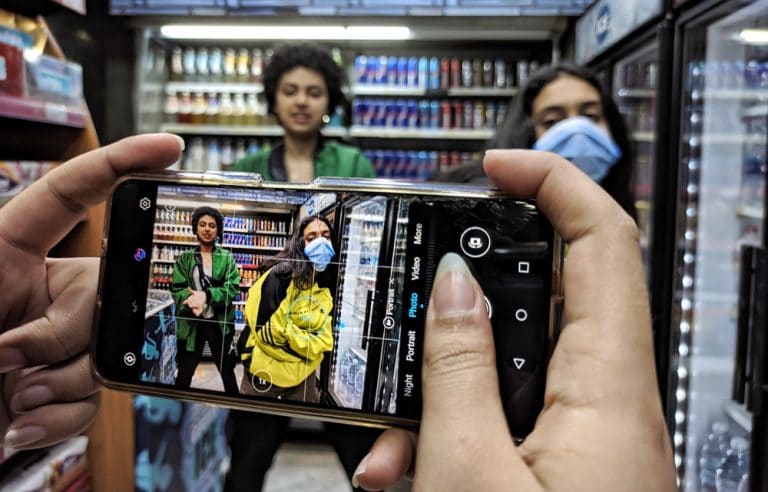From funny memes to dank ones, here’s everything you need to know about memes
We all love memes—they make us feel good, they make us laugh, and they can make us feel like we are part of a community. However, navigating through memes and internet culture can also be extremely overwhelming. I can testify personally as I recently wrote a dissertation on memes, a whole 9420 words to be precise, and it was not as easy as I expected it to be.
The truth is, internet culture is complex. Memes and internet phenomena spread so fast that it is difficult to keep up with each trend, let alone understand what half of the internet is talking about. Do not worry if you ever feel meme illiterate, we have all been there: here is everything you need to know in order to understand memes and internet culture better.
What exactly is a meme?
The term ‘meme’ was first coined by Richard Dawkins in 1976, in his book, The Selfish Gene. Dawkins identified memes as passing cultural concepts that spread quickly, were replicated, and eventually forgotten—such as songs or art styles.
Today, our understanding of memes is slightly different, as we see them as humorous cultural references that exist online. Contemporary memes also spread faster than ever before because of social media, and most commonly take the form of images with captions (also known as image macros), GIFs, videos, as well as other internet phenomena in forms of hashtags or challenges.
These can also get out of hand pretty quickly—remember when half of the internet was eating cinnamon powder, tide pods, and most recently, planning to storm Area 51? This was all a product of the internet and meme culture.
When was the first meme created?
this comic strip from 1921 is really relatable to this day pic.twitter.com/DXCpl923Iy
— seepy (@YoRHaw) April 15, 2018
It is difficult to pinpoint the first-ever meme. In 2018, Twitter user @YoRHaw posted the following comic, which comes from a 1921 issue of The Judge magazine. Internet users were quick to speculate on whether this was actually the first-ever pre-internet meme to exist.
Internet scholars and historians, however, argue that memes, as we know them, did not come about in mass culture until the mid-1990s. This is when internet users began gathering on the web and populating various messaging panels and Usenet newsgroups with images and concepts that they found funny. The first notable and viral internet meme was actually a 3D-rendered animation of a baby dancing to a song by the Swedish rock group Blue Suede. It was created by web developer John Woodell who was working on demonstrating the movie-to-gif process, but like any viral meme, it got taken out of context and was quickly turned into a viral joke.
The Hampster Dance website
The Hampster Dance followed shortly thereafter in 1998. Purposely misspelled, the Hampster Dance was one of the earliest single-purpose websites that featured rows of animated GIFs of hamsters and other rodents dancing to sped-up music. The site was created by Canadian art student Deidre LeCarte when she was in competition with her sister to see which one of them can generate the most website traffic, and, needless to say, she was the most successful. In fact, the meme became so viral that it led to the release of ‘The Hampsterdance song’ by The Bootmang Boys in 2000, and at one point, there were plans to create an animated series based on the hamster.
LOLcats memes
As the internet developed, meme-sharing destinations like eBaum’s World and 4chan gained momentum, and soon, image macros memes were developed. The first recorded viral image macro was actually the LOLcats meme, popularized by 4chan, which consisted of various images of cats and kittens accompanied by captions written in their own special grammar. The LOLcats meme paved the way for many memes as we know them today, as it was the first to reinforce unrelated captions to an unrelated image.
Regardless of when exactly the first-ever meme was created, the defining decade for memes and internet culture was the 2010s, as sites like YouTube, Tumblr and Facebook became extremely popularised and gave regular internet users an opportunity to mass-share different images, GIFs and videos.
You probably still remember Nyan Cat, Doge, the Gangnam Style music video, Rebeca Black’s ‘Friday’ or the ‘Harlem Shake’ challenge—these are only some of the most notable memes of the decade.
Meme culture today
Today, meme culture is as messy and as fast-paced as ever. As internet culture evolves, memes become more nuanced and layered, and less surface-level, meaning that it might take a deeper level of understanding to get the joke—which is where websites like Know Your Meme come in handy.
Contemporary memes are also about more than just humour—memes can be used to discuss mental health, influence politics, and even make money. Memes burn out as fast as they spread, but one thing is for certain: they are not going anywhere anytime soon.





